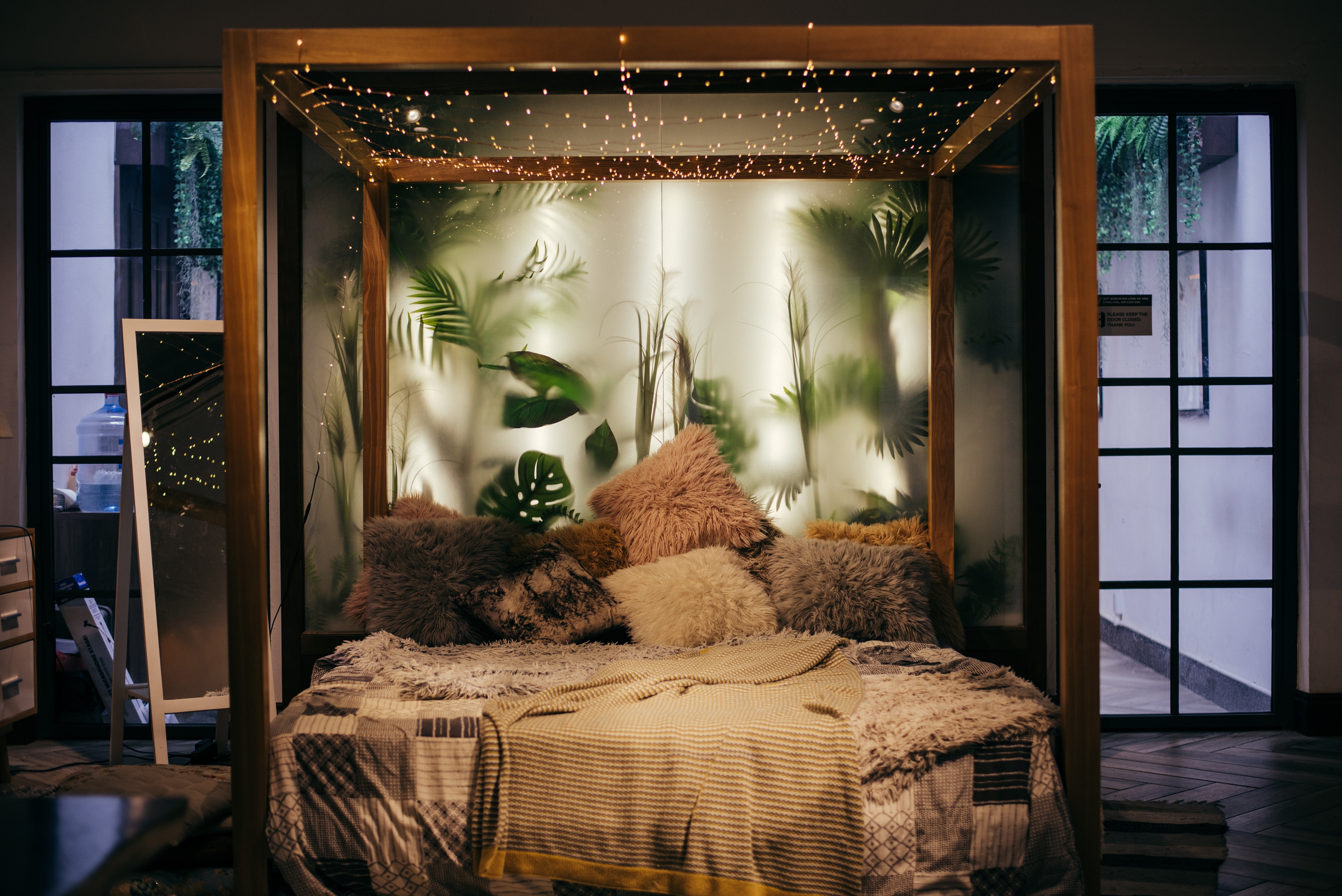In our modern times, we are inundated with bright, blue-lit screens from our digital devices. It doesn’t stop there. Ultra-bright LED and fluorescent lighting in our homes and workplaces add to the problem. Recent studies have shown blue light to play a key role in our global sleep crisis.
In fact, a recent poll of the National Sleep Foundation found 90% of people in the U.S. use a digital device an hour before bedtime. Do you experience nights full of tossing and turning when you stay up late using your cell phone, iPad, or laptop?
Don’t worry. You’re not alone — tons of people across the globe experience massive sleep disturbances from the use of artificial blue light at night. Endless modern-day, man-made blue light exposures can frazzle our nervous systems.
No wonder getting quality sleep every night often escapes us. Getting adequate sleep can be the difference between you having a vibrant life or a lackluster one. So why is sleep valuable? How does blue light affect our sleep? And most importantly, what can you do about it? Let’s explore together.
Why Is Sleep Important for Your Well-Being?
Did you know we’re asleep for a third of our lives? Just thinking about sleep may induce some zzz’s for you right about now. This might be a good thing if you struggle with insomnia or other sleep disorders. I get it. And have had my fill of mornings waking up to a groggy feeling and gnashing headache.
Sleep helps us to function and cope with our day-to-day activities. Many people think our bodies shut down while we sleep. This couldn’t be further from the truth. Our bodies are hard at work each night, repairing, rejuvenating, and recovering — from all the unseen traumas to our muscles and tissues we’ve experienced throughout our day.
Plus, during sleep, your brain stores everything learned for the day, so you can show up as your best self the next day. Do you want optimal health? Sleeping well is an essential ingredient of a healthy lifestyle.
Benefits of amazing sleep include:
- Increased creativity, productivity, and concentration
- Lowered chances of gaining weight
- Improved athletic and work performance
- Reduced heart disease risk
- An enhanced immune system (great for fighting any potential viral threat)
When we don’t get the sleep we need, we can lose our physical and mental well-being. This can lead to devastating conditions like cardiovascular disease, cancer, obesity, and even depression. Having healthy sleep hygiene in place is a great first step for preserving your health.
How Does Blue Light Interfere With Sleep?
So, what is blue light? Blue light is a color on the light spectrum we can see with our eyes. We get a natural form of blue light from the sun and artificial blue light from our digital devices. A healing dose of light from the sun every morning and during the day (small spurts are okay) can: boost our mood, attention, and reaction time.
Daylight helps align our circadian rhythm with our natural environment. Our circadian rhythm sets our sleep-wake cycles. While it’s true that we can accomplish a lot of our goals with our tech devices these days, but a constant bombardment of blue light emitted from our screens can wreak havoc to our health.
Using blue-lit devices at night makes your brain think it’s morning. Can you imagine the confusion this can cause? Plus, you want to wind down, but the blue light from your phone will leave you charged and awake. Say goodbye to some much-needed shut-eye.
Blue light emitted from our phones, TVs, tablets, and fluorescent lights also lower our melatonin production. Melatonin is a hormone that regulates our circadian rhythm. It lets our brain know it’s time for sleep when it gets dark. If melatonin levels aren’t high enough, you’ll have trouble falling asleep or staying asleep (or both).
Blue light also lowers REM sleep (our deep state of sleep). So, you’ll feel unrested when you wake up. Night shift workers experience circadian rhythm disruption the most. But you should be mindful of your artificial blue light exposures if you want to maintain good health.
What Are the Best Sleep Tips Available?
If you’ve already tried basic sleep hygiene, and you’re still not getting enough sleep — for you. There’s hope. You might have to sacrifice somewhat though to reap blissful rest night after night. Are you ready?
Here are some effective tips for better sleep:
- Get ample sun exposure during the day to sleep well at night
- Avoid ALL screens about 2-3 hours before bedtime
- Apply warm (red) light settings on your cell phone and computer at sundown
- Go to bed and wake up the same time each day (even on weekends)
- Wear blue-blocking glasses at night if you can’t give up your late-night binges
- Use blackout curtains in your bedroom to drown out any outside light
- Switch out your LED and fluorescent bulbs in your bedroom and bathroom for old school incandescent or red light bulbs
There you have it. You’re well on your way to better sleep.
Sweet Dreams

Sleep doesn’t have to be this elusive, rare find. You can craft out a calming sleep routine built to help you show up the way you’d like to in the world. All it takes is a willingness to adopt some useful habits that’ll improve your well-being now and into the future. Have you tried any of these sleep hacks? Let us know if you got better sleep.


